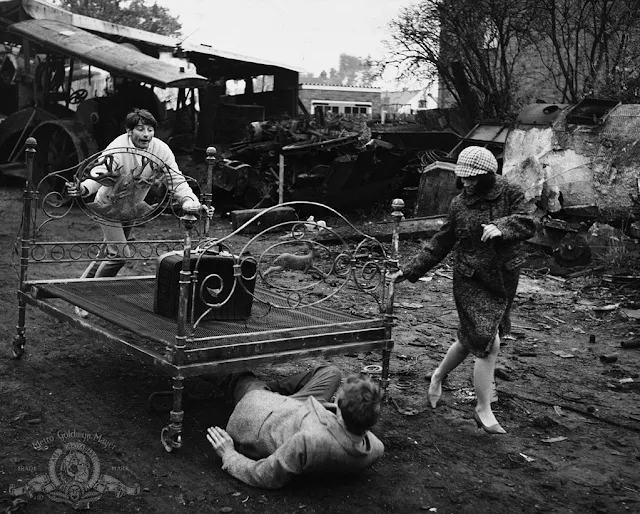Cast: Rita Tushingham, Ray Brooks, Michael Crawford, Donal Donnelly. Screenplay: Richard Lester, based on a play by Ann Jellicoe. Cinematography: David Watkin. Art direction: Assheton Gorton. Film editing: Antony Gibbs. Music: John Barry.
When I saw The Knack when it was first released, I was about the age of its principal characters, and I wondered why they were having so much more fun than I was. The obvious answer is that my life was not being directed by Richard Lester. But today, what seemed like a giddy delight of a movie, which so wowed the jury at Cannes that they gave it the Palme d’Or, feels a little tiresome and sad. It climaxes, after all, with Rita Tushingham’s character crying rape. And even though her cries, which are sometimes more like chirps, are played for laughs, we have learned to treat rape as no laughing matter, so a sourness has infected the movie that can’t be dismissed as misapplied “wokeness.” There are still things to like about The Knack: It does have a certain naïve charm and a great deal of energy, and the chorus of stuffy middle-class Brits commenting on the antics of the young is often funny. But the film is as dated as a farce about the flappers and flaming youth of the 1920s would have been to the “mods and rockers” of the mid-‘60s















